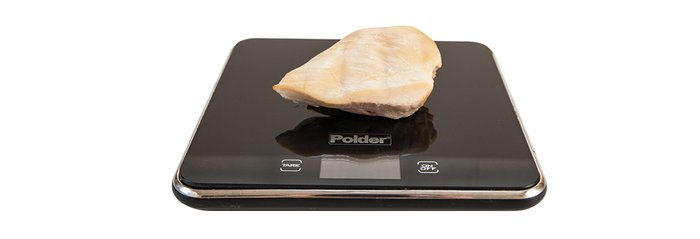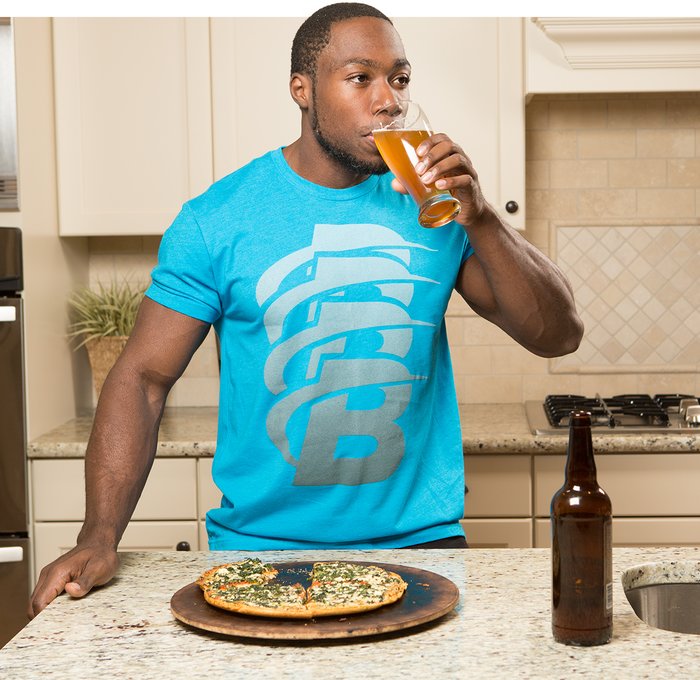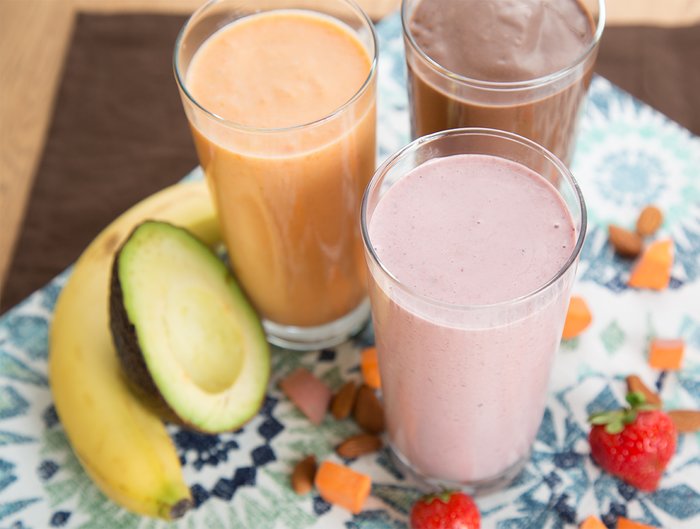Have you been watching every calorie, denying yourself all the things you love to eat the most—and are still not seeing any results? If you've been dieting and following your plan to the letter but haven't seen that scale budge, it's time to take a closer look at your approach.
Sometimes little issues that pop up along the way can snowball into big problems if you don't deal with them right away. Are any of the following issues twisting up your diet? If so, straighten them out so you can start seeing those results you're looking for.
1. You've been dieting for far too long
When was the last time you left the table feeling truly satisfied after a meal? If you always have that gnawing feeling of hunger, something must change.
The first reason you may not be burning fat like you'd hoped might be that you've simply been dieting too long. Prolonged dieting can put you in a reduced-calorie state. This starvation mode slows your metabolism. Sure, you're consuming fewer calories, but you're also burning fewer, which means you're not making any progress.
If this sounds like you, take a break. Seriously! Don't be afraid to take a breather for 2-4 weeks and stop worrying about calories-in versus calories-out. You're just taking one step back so you can keep seeing results in the long run.
2. Your measurements of your meals are off
Perhaps the most common reason people don't lose the weight is because they simply aren't measuring their food correctly.

You're preparing your nightly pre-bed snack. You stick your spoon into the peanut butter jar and drop a generous dollop into your Greek yogurt. But wait. How much peanut butter was on that spoon? If you've been estimating it to be about one tablespoon, yet it's closer to two, you've just added 80-100 calories to your diet. And you wonder why your diet isn't working!
Peanut butter is a good example because it's calorie dense and you don't usually get out the measuring spoons for a little dab of it. Make the same mistake with other high-calorie foods such as steak, salmon, pasta, or nuts, and it's easy to see why the pounds seem to keep sticking around.
3. You're falling off your plan on the weekends
How many times have you heard someone say that they're faithful to their diet…during the week? Come the weekend, these same rigorous dieters fall off the wagon—hard. The weekend is almost 30 percent of your total week. If you follow your diet only 70 percent of the time, it's no wonder you aren't seeing the losses you're after.
When it comes to percentages, try the 90/10 rule instead: Follow your diet 90 percent of the time, then relax and have fun for the remaining 10 percent. This is a great rule to follow. It allows you to indulge a little, but helps you stay mainly on the right path.

You don't see people following a 70/30 rule because spending 30 percent of your time ignoring your diet and having "fun" is never going to produce results. Be real with yourself about how closely you are following your diet plan. It's not enough to just follow it to the letter during the week. Weekends count, too.
4. You're not adjusting your program as you go
People also fail to see results because they don't adjust their program as they progress. They start their diet plan, see great results, and just keep doing what they did at the start, expecting more of the same results to follow. Sadly, it doesn't always work like that. Your body changes in response to your plan, so your plan needs to change, too.
The leaner you are, the more your body wants to slip into that starvation mode and conserve fuel. As counterintuitive as it sounds, consuming more carbs can help you avoid that reaction. Increasing your carb intake can also optimize your insulin sensitivity and release of the hormone leptin, which helps maintain body weight.[1]
5. You hit the gym to burn calories
To lose weight, you must work out hard, right? There's nothing wrong with heading to the gym with the sole purpose of burning calories—unless you get too fixated on this one indicator. If you just want to burn calories, you're far more likely to hop on the cardio machines the entire time, simply because these machines spit out a calorie-burn number, making it easy to track your progress.
Barbells offer no such calorie numbers, even though lifting can produce the most significant changes to your body. Not only does lifting help you burn fat overall, it also helps reshape your body.

That's why at least 70 percent of your workout should be spent lifting weights. Cardio exercises are great, but they should be the icing on the cake, something to improve the results produced by strength training. Don't rely on cardio alone to put yourself in a calorie deficit.
For best results, stack your workout exercises back to back, resting as little as possible in between them. A study published in the Journal of Strength and Conditioning Research notes that low-rest training increases your post-workout calorie burn more than conventional training does.[2]
6. Your workouts are running you into the ground
When you hit the gym, you might think going pedal to the metal is a good thing. Working hard in the gym isn't bad, per se, but watch how this max-energy output influences the other 23 hours of your day.
Too many people, especially those starting out, will work as hard as they can during their workouts, only to fall back into a very sedentary lifestyle the rest of the time. Why? Because they're exhausted from the workout!
All the little bits of activity you do during the day can play a huge role in getting your total daily calorie burn up higher. If you're too tired to go for a walk, do some house cleaning or shoot hoops with the kids. Your workout might be reducing, rather than increasing, the number of calories you burn each day.
Let's say, for example, that you do a hard, but not exhausting, workout that burns 300 calories. That should leave you with enough energy to burn maybe an additional 400 calories over the rest of the day. Your net total calorie burn would equal 700.
Now let's say you do an exhausting workout that burns 500 calories. It's so exhausting, in fact, that you spend the rest of the day on the sofa. Your additional calorie burn? Fifty. So, your grand total for the day is only 550 calories.
Long story short: If you exercise too hard, you can reduce your ability to lose weight.
7. The juice bar is your post-workout hangout
Finally, beware of this common post-workout mistake: Treating yourself to a big snack after a big workout. Whether you snack or not after exercising, you will retain all the strength and cardiovascular improvements you gained during that workout session. But, if you follow it with a big smoothie or a bagel with cream cheese, you can end up calorie neutral after all your sweat and hard labor.

You need those carbs post-workout. Just remember that those calories count. You absolutely do want to refuel post-workout, just don't consume another 400 calories in the process.
References
- Klok, M. D., Jakobsdottir, S., & Drent, M. L. (2007). The role of leptin and ghrelin in the regulation of food intake and body weight in humans: a review. Obesity Reviews, 8(1), 21-34. Da Silva, Rodrigo Lavinas, Michel Arias
- Da Silva, R. L., Brentano, M. A., & Kruel, L. F. M. (2010). Effects of different strength training methods on postexercise energetic expenditure. The Journal of Strength & Conditioning Research, 24(8), 2255-2260.

